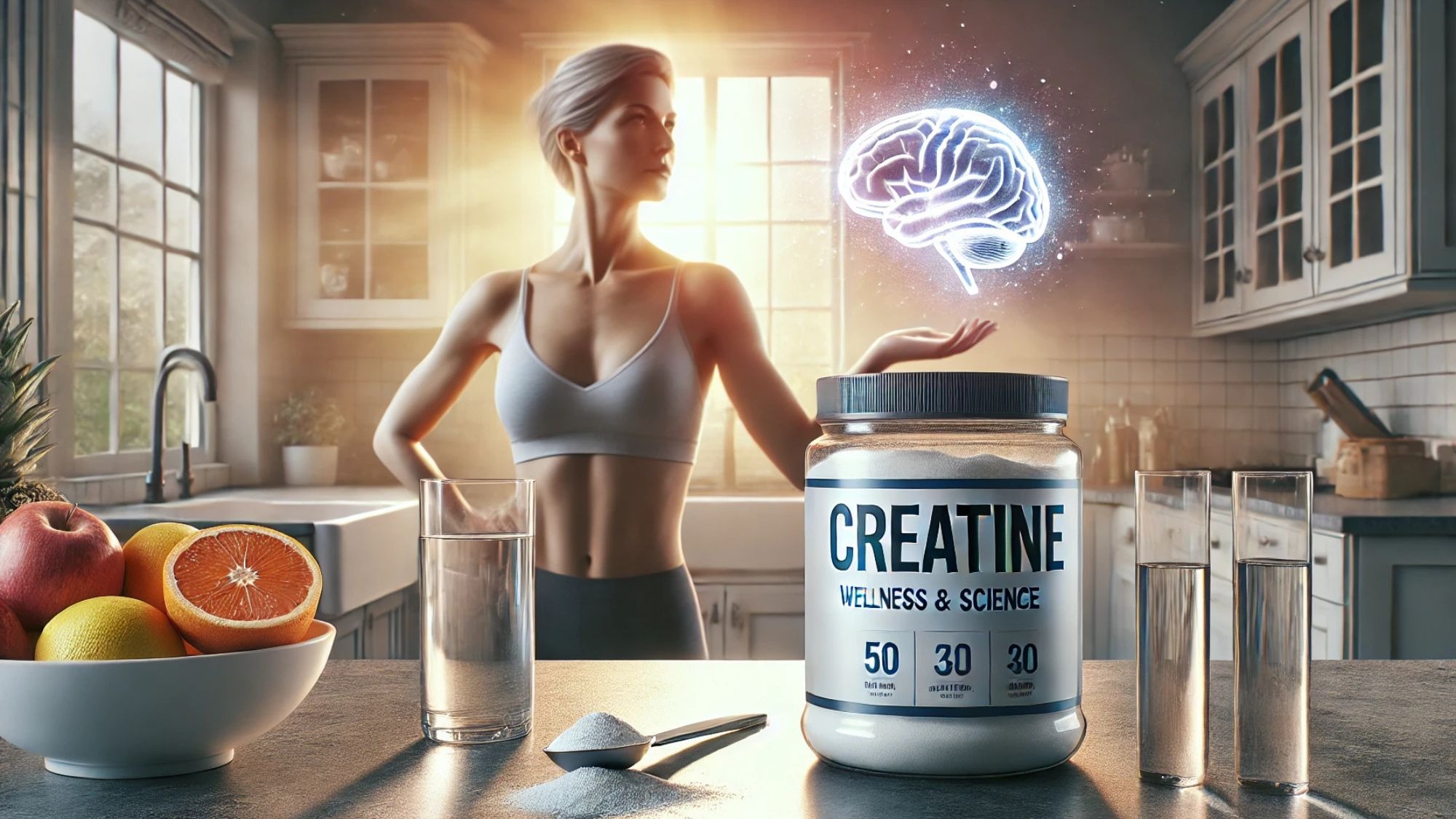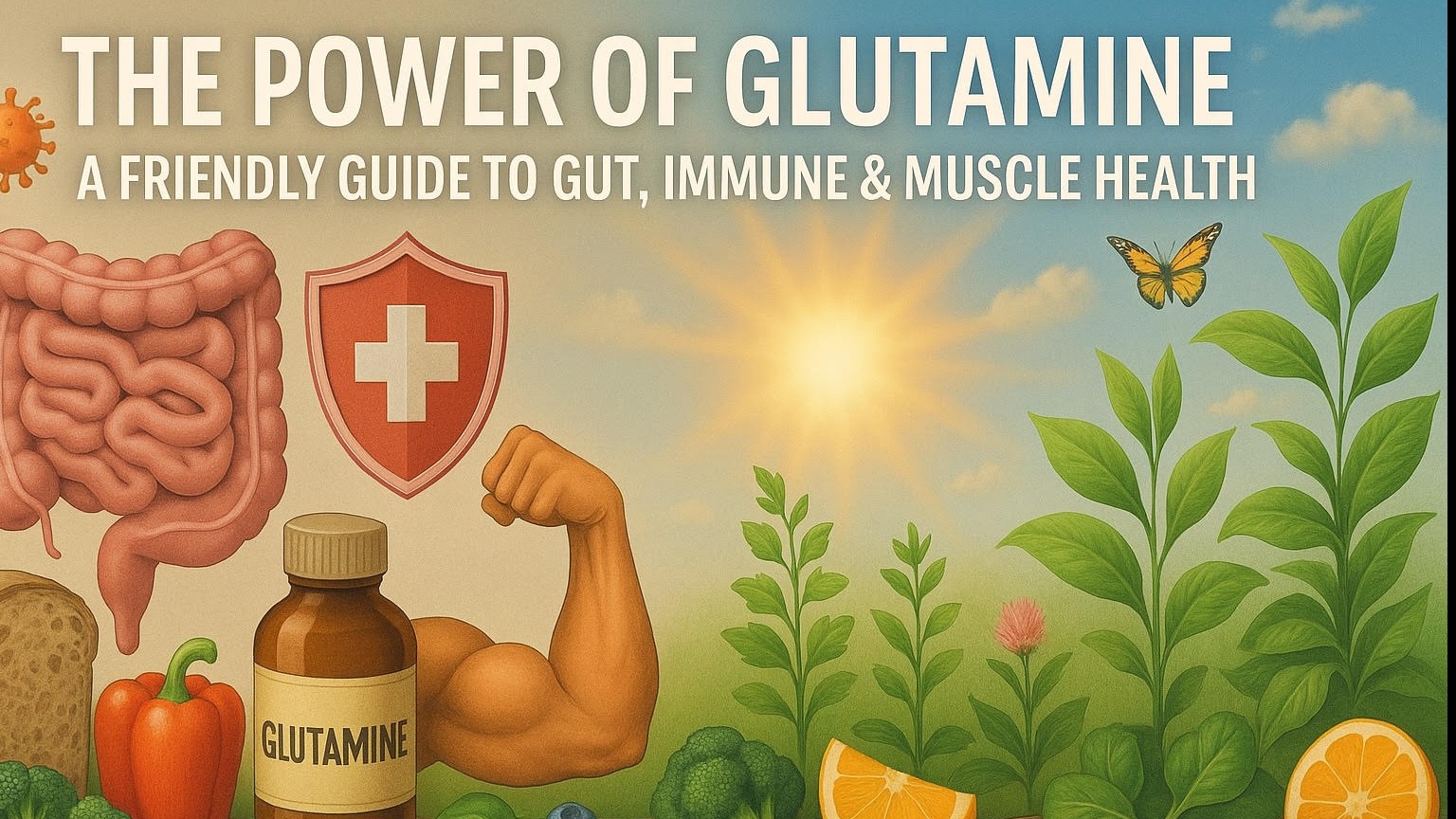
What Is Creatine—Really?
Creatine is naturally made in your liver, kidneys, and pancreas using the amino acids arginine, glycine, and methionine. It’s stored primarily in your skeletal muscles and your brain, where it helps regenerate your body’s energy currency—ATP (adenosine triphosphate)—especially during stress, exercise, or cognitive demand.
Here’s the thing: your body makes about 1–3 grams per day, and unless you eat a ton of red meat or fish, your stores are probably not topped off. In fact, most muscles are only 60–80% saturated without supplementation, and brain creatine levels tend to be even lower—especially in vegetarians, older adults, or those with chronic stress or illness.
Why Creatine Is Way More Than a Gym Supplement
We’ve long known creatine supports muscle growth and athletic performance, but new research is painting a much bigger picture. Think: neuroprotection, anti-aging, bone density, inflammation control, and even support in neurodegenerative diseases like Alzheimer’s and Parkinson’s.
Let’s look at the studies—one by one—and break them down.
Brain Benefits: The New Frontier
1. The Alzheimer’s Pilot Study That Turned Heads (University of Kansas, 2024)
Researchers at the University of Kansas Alzheimer’s Disease Research Center (CABA) ran a pilot study with older adults diagnosed with early Alzheimer’s. The team gave participants a high daily dose of 20g creatine monohydrate for 8 weeks—split into smaller servings throughout the day.
Here’s what they found:
MRI scans showed an 11% increase in brain creatine stores. That’s a big deal because it proves creatine can cross the blood-brain barrier and directly support your brain’s energy system.
-
Cognition wasn’t just “preserved”—it improved:
Working memory (e.g., recalling word lists or task sequences)
Processing speed
Executive function (decision-making, focus)
Participants also scored better on NIH cognitive tests, especially in fluid intelligence and attention control.
Bonus: No major side effects—just some mild digestive issues in a few participants.
Why this matters: Alzheimer’s is linked to mitochondrial dysfunction and low brain energy. Creatine may offer a non-drug way to literally energize aging neurons.
2. Creatine for Sleep-Deprived Brains (German Study, 2023)
We all know that foggy, fried-brain feeling after a terrible night’s sleep. In this study, researchers gave a single large dose of creatine (0.35 g/kg, or about 24g for a 150-lb person) to healthy adults who’d been awake for over 20 hours.
Results? Pretty remarkable:
-
Brain scans showed ATP levels were protected compared to placebo.
Cognitive testing improved in:Word recall
Reaction time
Mental math
Mood and fatigue ratings
The effects were noticeable within hours of taking the supplement.
Why this matters: Under stress—like sleep loss, emotional burnout, or chronic disease—your brain burns through ATP faster. Creatine seems to recharge your brain in real-time. Could this help caregivers, shift workers, or busy moms? Possibly.
3. Meta-Analysis: Memory & Attention in Aging Brains
A 2023 scientific review analyzed over a dozen human trials and found modest, but consistent improvements in:
Short-term memory
Working memory
Reaction time
Attention and focus
These effects were strongest in older adults, people under cognitive stress, and women—who may respond better due to lower baseline creatine levels.
Why this matters: You don’t need to have a disease to benefit. If you’re aging (hello, all of us), your brain may just run better on a little creatine
Muscle, Bone & Aging Benefits
We’ve covered the brain—but creatine’s original reputation as a muscle enhancer still holds. And here’s the kicker: the benefits are even more profound as we age.
4. Muscle Mass & Sarcopenia in Older Adults
Multiple studies (including meta-analyses) have shown that when adults over 50 take 3–5g of creatine daily + do resistance training, they see:
Greater muscle strength and lean mass gains
Reduced fall risk
Slower loss of bone mineral density
Lower levels of inflammatory markers
Even without lifting weights, creatine helps preserve muscle—just at a slower pace.
Why this matters: Sarcopenia (age-related muscle loss) is one of the strongest predictors of poor health, frailty, and even mortality. Creatine is a simple, safe intervention that slows the clock.
What About That “No Difference” Study?
One small 12-week study showed no muscle gain between creatine and placebo—but participants weren’t weight training, and the changes may have been masked by early water retention (a normal first effect of creatine). The total body of evidence still heavily favors creatine for muscle health.
How Much Creatine Should You Take?
Goal |
Dose |
Notes |
General health |
3–5 g/day |
Safe long-term, even without loading |
Rapid saturation |
20 g/day split into 4 doses for 5–7 days |
Optional “loading phase” |
Cognitive support (acute) |
0.3–0.35 g/kg (one-time) |
For sleep deprivation, brain fatigue, etc. |
Older adults |
3–5 g/day + resistance training |
Helps with sarcopenia, falls, brain energy |
Alzheimer’s/clinical use |
20 g/day (under supervision) |
Used in pilot studies—monitor with a provider |
Tips for Getting the Most from Creatine
Use creatine monohydrate – It’s the most researched and effective form.
Take it with food, especially with carbs or protein to enhance absorption.
Stay hydrated – Creatine draws water into your muscle cells.
Be consistent – It takes time to saturate your cells. Daily dosing is key.
Go slow if needed – Start with half doses to avoid GI issues.
Functional Nutrition Final Thoughts
Creatine isn’t a performance enhancer. It’s a cellular fuel source—one that supports your brain, muscles, bones, and metabolic energy across your life span.
Whether you’re navigating cognitive changes, battling midlife fatigue, or simply trying to age well and stay strong, creatine may be one of the most important tools in your toolkit.
And with decades of data showing it’s safe, effective, and affordable, there’s never been a better time to make creatine part of your functional health strategy.
References
University of Kansas Alzheimer’s Creatine Pilot Study (2024) – KUMC.edu
Rawson ES et al. “Creatine supplementation and brain performance.” Neurosci Biobehav Rev. 2023.
Gualano B, et al. “Creatine supplementation in aging and neurodegenerative disorders.” JISSN (2022).
Avgerinos K, et al. “Effects of creatine on cognitive function.” Frontiers in Neuroscience (2020).
Kreider R, et al. “ISSN position stand: creatine supplementation and exercise.” JISSN (2017).
Wallimann T. “Creatine: a new therapeutic target?” Aging Research Reviews (2016).
 Add Row
Add Row  Add
Add 










Write A Comment